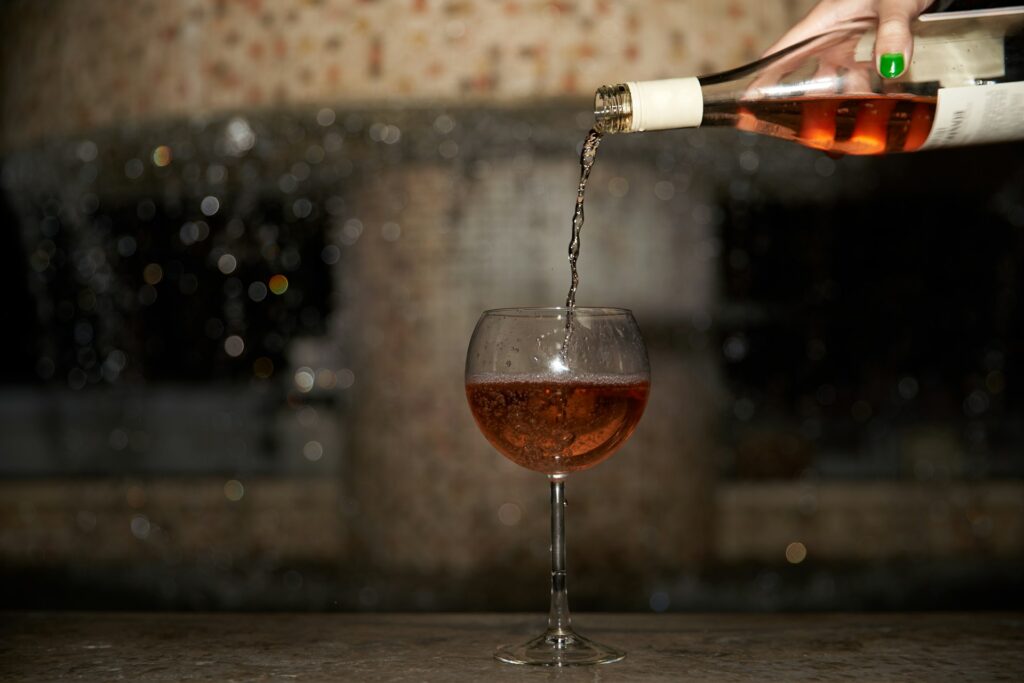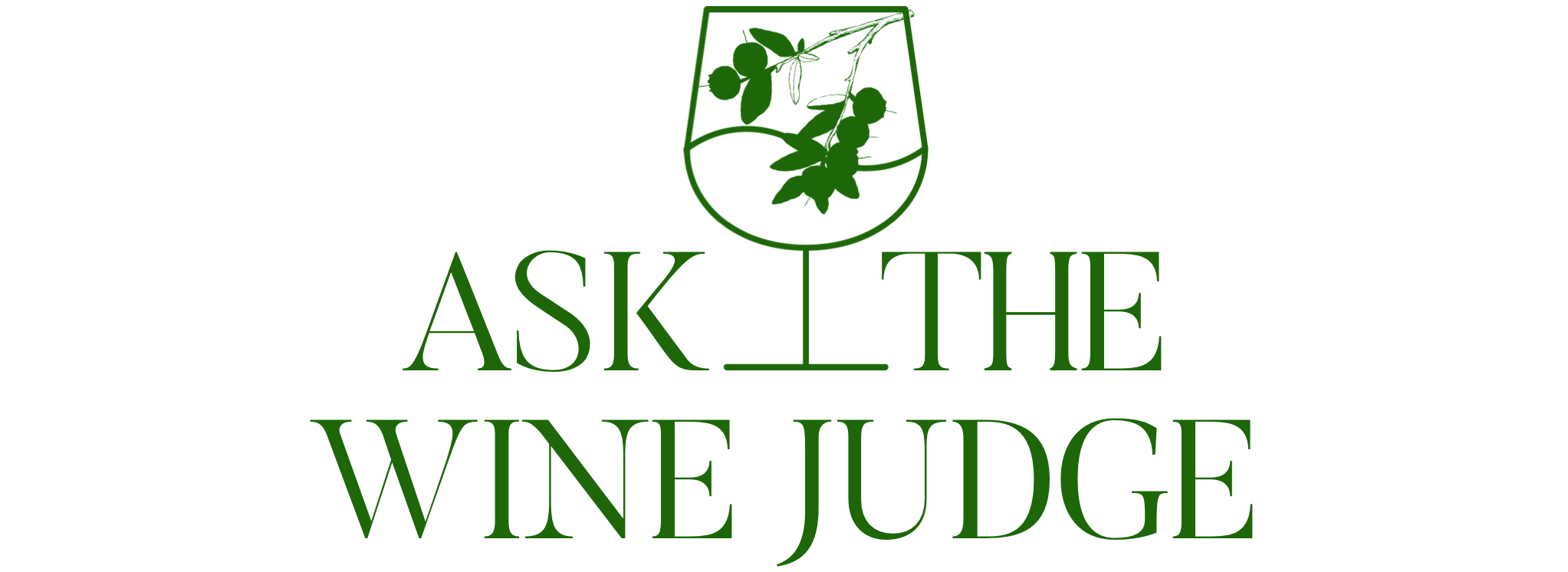Table of Contents
Have you ever placed a bottle of wine in the freezer to chill it quickly and then forgotten about it? If so, you know that wine does indeed freeze, but have you ever wondered at what point wine turns from liquid indulgence to a block of ice? The freezing point of wine is lower than that of water thanks to the alcohol content, which acts like antifreeze, and various other components in the wine. This means your beloved Sauvignon Blanc won’t freeze solid as quickly as, say, lemon juice. But when you freeze your wine, you’re not just chilling it down; you’re initiating a complex process that can affect the wine’s flavor and the subtleness that makes each sip enjoyable.
And what about a frozen bottle of wine exploding? Wine bottles are made of glass, and as liquids expand when they freeze, there’s a real danger of the bottle cracking if there’s no room for the liquid to expand. This is why it’s unwise to freeze wine unless you’re taking specific precautions. Freezing your wine can be a risky game, but sometimes the reward is a refreshing wine popsicle or a handy cube of wine for cooking. So, is it ever safe to leave an opened bottle of wine in the freezer, and how does storing the wine at room temperature compare? Let’s dive into the science behind wine freezing and explore the different scenarios where you might intentionally or accidentally drink frozen wine.
Understanding the Freezing Point of Wine
Did you know that the freezing point of wine is influenced by its average alcohol content and the various compounds in wine? Because of these factors, determining the freezing point can be a bit like solving a chilly puzzle. Generally, wines will freeze at around 22 degrees Fahrenheit (-5.6 degrees Celsius), but it varies.
Factors Influencing Wine’s Freezing Temperature
If you’ve ever tried to freeze red wine, you might have noticed it doesn’t freeze as easily as white wine. That’s because the sugar content in the wine significantly affects how quickly it turns to ice. Wines with higher sugar content, like some dessert wines, have a lower freezing point, making them more resistant to cold temperatures. So, if you’ve forgotten to chill your wine for that dinner party and are tempted to pop it in the freezer, remember that different wines will freeze at different rates.
The Role of Alcohol Content in Wine’s Resistance to Freezing
Alcohol is like an antifreeze for wine. The higher a wine’s alcohol content, the lower the temperature it needs to freeze. This is why your freezer-safe bottle of vodka never turns into a popsicle, while your bottle of wine might. Most wines have an alcohol content that hovers around 9-16%, which makes them freeze at temperatures your home freezer can easily reach. So, if you want to chill your wine quickly, keep a close eye on it, or you may end up with a slushy surprise.
How Sugar Levels Affect the Freezing Process of Wine
Like alcohol, sugar content is another factor that lowers the freezing point of wine. The sweet flavors and aromas you love in a dessert wine also mean it’s less likely to turn into a wine ice cube in your freezer. Sugar acts as an antifreeze and can keep your wine from freezing solid, even in cold temperatures. So, when trying to freeze wine for cooking or create that refreshing wine slushy, remember that the sugar content will affect how long you have to wait for it to reach the perfect frosty consistency.
Sparkling Wine – A Special Case in Freezing
Sparkling wines, like your favorite bottle of bubbly, require special attention when freezing. Because sparkling wine expands and can push the cork out or even burst the bottle, it’s essential to not freeze your wine. If you must chill a sparkling wine in the freezer, don’t forget about it! Ideally, submerge your bottle in a mixture of ice and water to chill it without the risk of freezing solid. But if you still end up with a frozen bottle, thawing it slowly is key to preserving its subtle flavor. And remember, once sparkling wine is exposed to freezing temperatures, it’s not always safe to consume, even after it’s thawed.

The Potential Consequences of Freezing Wine
While freezing your wine might seem like a quick fix to get your drink to the perfect coldness, it can have consequences. As wine expands in freezing temperatures, you risk the bottle cracking or the cork being pushed out, leading to a messy cleanup. If you’ve ever put a bottle of wine in the freezer and then forgotten it, you know the dread of finding it later, hoping it didn’t freeze solid. And even if your bottle survives the freeze, the wine’s flavor can be affected by the temperatures needed to freeze it, which might not make it the most enjoyable drink after thawing. So, allow the wine to expand and monitor it closely if you’re taking the risk of chilling it in such a cold environment.
The Chemistry of Wine and Its Alteration Upon Freezing
When you freeze your wine, you’re not just changing its temperature; you’re affecting its chemistry. As wine freezes, the water content turns to ice, concentrating the alcohol and other components, which can alter the flavor. You must allow room for expansion to avoid sparkling wine in the freezer turning into a disaster.
Oxidation and Its Impact on Frozen Wine
Have you ever left a glass of wine out overnight only to find its flavors and aromas changed by morning? That’s oxidation at work. Now, imagine you’ve stored an opened bottle of wine in the freezer with a screw cap on. As you thaw your frozen bottle of wine, the increased surface area exposed to air can lead to accelerated oxidation, diminishing the wine’s flavor. It’s a delicate balance between preserving that leftover wine and keeping it from turning into oxidized wine, losing the tartaric acid and other compounds that give it its unique character.
The Risk of Freezer Burn on Wine’s Flavor and Aroma
Just like food, wine can suffer from freezer burn. When you chill your wine in the freezer, especially if it’s an opened bottle, the wine’s flavor and aroma can be dulled or changed by the formation of ice crystals. This is why many wine enthusiasts recommend storing the wine properly in a wine cellar rather than risking a negative impact on its delicate flavors and aromas from freezing temperatures.
Practical Insights on Wine Freezing
Freezing wine can be practical in some situations, like when you need to cool down a bottle quickly or want to preserve wine for cooking. But you must consider the potential effects on the wine’s quality.
Duration Considerations: How Long It Takes for Wine to Freeze
Curious about how long it takes for wine to freeze? The time it takes to freeze can vary based on several factors, including the type of wine and your freezer’s settings. Typically, a kitchen freezer is around 0 degrees Fahrenheit (-18 degrees Celsius), so it might take a few hours for your wine to reach a slushy state. So if you are planning a party and want a quick cool, check on your wine periodically to avoid it freezing solid!
Can Frozen Wine Still Be Enjoyed?
If you’ve accidentally left a bottle of wine in the freezer and it’s turned into a frozen bottle of wine, don’t panic. You might be wondering if it’s still good to drink. Depending on how it’s thawed and the type of wine, it might still be enjoyable.
The Quality of Thawed Wine for Consumption
Thawing frozen wine requires patience. The key is to allow it to thaw slowly, preferably in the refrigerator, to minimize the risk of altering its taste. Once thawed, assess the wine’s clarity and aroma. If it smells off or the flavors seem muted, it might not be ideal for drinking. However, if the wine still has its characteristic bouquet and taste, it could be fine to enjoy.
Frozen Wine for Cooking
Wine enthusiasts often freeze wine for cooking to add depth and flavor to sauces and stews. When wine is frozen, its essential flavors are preserved, making it a convenient ingredient to have on hand. Just pour the wine into ice cube trays and once frozen, transfer them into a freezer-safe bag for future culinary adventures.
Preventing Unwanted Wine Freezing
If you don’t want your wine to freeze solid, keep it away from the coldest parts of your freezer, and if you must chill it quickly, set a timer as your memory’s backup.
Sometimes, you may forget to time your wine and open your freezer to a frosty surprise—a bottle of wine turned ice block – a sad sight. To dodge this disaster, avoid freezing a wine by keeping it in a wine fridge or cool cellar. If you don’t have those, even a regular fridge can work. The goal is to maintain a steady temperature that’s well above freezing.
Handling and Safety Measures
When it comes to wine, safety first! A frozen bottle of wine can be like a ticking time bomb in your freezer. As the liquid expands, it can push against the glass, risking an explosion of shards and spills. To prevent a wine disaster, ensure your freezer is above the wine’s freezing point. If you must chill quickly, consider a wine sleeve or ice bucket instead. And never, ever forget a bottle in the freezer—unless you’re a fan of cleaning up wine-flavored ice! A good rule of thumb is to check on the bottle after about 30 minutes. Stay vigilant, and your wine—and freezer—will thank you.
Proper Thawing Techniques for Frozen Wine
Oops, your wine’s turned into an ice sculpture. Now what? Thawing it properly is crucial. The best method is to transfer the bottle to the fridge and let it thaw slowly. Rushing the process at room temperature can alter the wine’s flavors. And here’s a pro tip: once thawed, give it a taste before serving. Sometimes, a wine can survive a freeze and still be delightful—other times, not so much.

Preservation and Enjoyment of Wine
As a wine enthusiast, your mission is to preserve the essence of every bottle. But let’s face it, sometimes you just want a glass of wine chilled to perfection, and you want it now. So, how do you strike that balance? With some know-how and patience, you can enjoy that glass of wine at its best without compromising its character.
The Best Practices for Chilling Wine Without Freezing
For white wines, two hours in the fridge should do the trick. Reds? Try 20 minutes in the fridge for that perfect, slightly chilled touch. And if you’re in a hurry, wrap the bottle in a damp cloth and place it in the freezer for a quick chill—just don’t forget about it!
Alternative Methods to Cool Wine Quickly and Safely
In a pinch and need your wine-tasting ready in a jiffy? Instead of risking the freezer, try an ice bath. Fill a bucket with ice, water, and a sprinkle of salt—the salt lowers the water’s freezing point, chilling your bottle faster. In about 15 minutes, you’ll have a bottle that’s cool to the touch and ready to impress. It’s like a little wine-chilling hack that keeps the texture of the wine just right. Cheers to that!
Wrapping Up the Chilly Facts on Wine Freezing
As we bundle up these cool insights, have you ever wondered about the fate of your favorite bottle in the cold clutches of a freezer? Well, wine does indeed freeze, but it’s a bit more complex than water turning to ice. The freezing point of wine is lower due to its alcohol content, which acts like an antifreeze. So, the next time you’re tempted to chill a bottle quickly, remember that the freezer might not be your friend. But hey, if you want to whip up some wine popsicles or a slushy, that’s another story!
So, what should you, as a wine lover, take away from this frosty topic? First, if you’re storing wine, keep it away from the freezer to maintain its integrity. But if you freeze it, perhaps intentionally for a cold treat, remember to handle the bottle carefully to avoid any explosive disappointments. And when it’s time to defrost, do it gently to preserve as much of the wine’s original charm as possible. Are you curious about how your thawed wine might taste? Try and see if it still sings with flavor!

Sed non elit aliquam, tempor nisl vitae, euismod quam. Nulla et lacus lectus. Nunc sed tincidunt arcu. Nam maximus luctus nunc, in ullamcorper turpis luctus ac. Morbi a leo ut metus mollis facilisis. Integer feugiat dictum dolor id egestas. Interdum et malesuada fames ac ante ipsum primis in faucibus.




